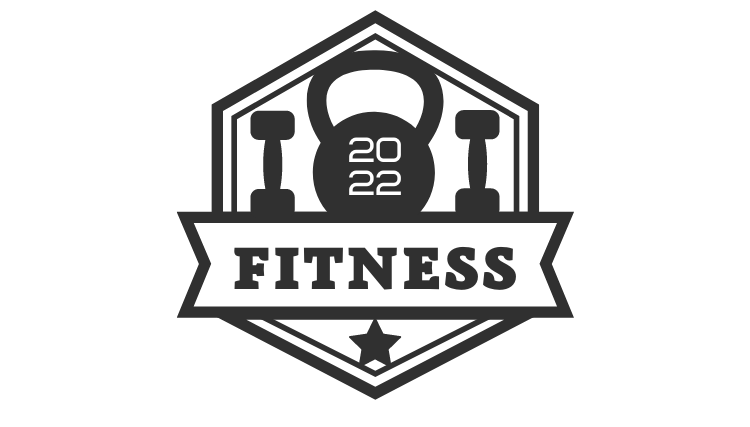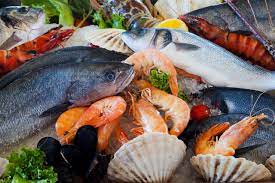In this study on weight loss and diet plans we will explore both.
Near half of all Americans try to lose weight every year.
Changing your diet is one of the best ways to lose weight.
A diet plan can be difficult to start because there are so many options.
In some diets, you’re told to cut back on calories, carbs, or fat.
In addition to weight loss, many have other health benefits.
Here are the 8 best diet plans for weight loss and improved health.
1. IF
Irregular eating and fasting is an intermittent fasting diet strategy.
The 16/8 method limits daily calorie intake to 8 hours, while the 5:2 method limits daily calorie intake to 500–600 calories twice a week.
What it is:
An easy way to lose weight is to practice intermittent fasting.
So long as you don’t overeat during the allowed eating periods, you can lose weight.
Obesity: Intermittent fasting causes the most weight loss, 3–8% over 3–24 weeks.
The same review shows that this way of eating may help reduce harmful belly fat by 4–7%.
Intermittent fasting has also been shown to improve metabolism by increasing fat burning while preserving muscle mass.
It has been linked to improved brain health, decreased inflammation, and anti-aging properties.
Cons: In general, most healthy adults can do intermittent fasting safely.
Intermittent fasting can cause blood sugar drops in pregnant or nursing women.
SUMMARY
Intermittent fasting alternates between eating and fasting.
It has been linked to many health benefits, including weight loss and fat loss.
2. Vegetarian Diets
Plant-based diets may aid in weight loss.
For health, ethical, and environmental reasons, vegetarians and vegans are the most popular.
Diets that allow for moderate consumption of animal products include flexitarian diets.
What it is: Some vegetarians avoid all meat, poultry, and fish while others eat only fruits and vegetables.
Vegans may also avoid eggs and dairy products.
Vegans avoid dairy, gelatine, honey, whey, casein, albumin, and other animal products.
The flexitarian diet is more of a lifestyle change than a diet, so there are no hard-and-fast rules.
With a focus on fresh produce and whole grains, it is a popular alternative.
Food restriction may help weight loss because many restricted food groups are high calorie.
Plant-based diets help with weight loss, according to research.
A meta-analysis of 12 studies involving 1,151 people found that vegans lost 4.4 pounds (2 kg) more than meat-eaters.
In addition, vegans lost 5.5 pounds (2.5 kg) more than non-vegans.
In addition to being high in fibre and low in high-calorie fat, plant-based diets may help weight loss.
Other Gains:
Heart disease, cancer, and diabetes can all be prevented by eating more plants. Meat-based diets are more eco-friendly.
Cons: Even though plant-based diets are healthy, they may lack essential nutrients like:
- Iron
- Vitamin B12
- Vitamin D
- Omega-3 fatty acids
A flexitarian diet or supplements can help account for these nutrients.
Diets based on plants often exclude meat and dairy for health reasons.
In addition to reducing calorie intake, they help with weight loss.
3. Low-carb Diets
In recent years, low-carb diets have gained popularity.
Low-carb, high-fat diets like the Atkins and Keto diets are popular.
Some varieties are more carb-friendly than others.
Diets with low carbohydrate content, like the ketogenic diet, limit this mineral to less than 10% of total calories.
What it is: Low-carb diets emphasize protein and fat over carbohydrates.
It’s important to note that they’re typically higher in protein than low-fat diets. 
Unlike carbs, fatty acids are converted into ketones in very low-carb diets like the ketogenic diet.
Ketosis is the result of that.
Eating fewer carbs may help you lose weight faster than low-fat diets, according to research.
Low-carbohydrate diets resulted in greater weight loss than low-fat diets.
Detrimental belly fat appears to be effectively burned by low-carb diets.
Other Gains:
Low-carb diets may help lower cholesterol and blood pressure, two risk factors for heart disease.
Patients with type 2 diabetes may also benefit from them.
Downsides: Low-carb diets can sometimes raise LDL (bad) cholesterol.
Highly low-carb diets can be challenging to follow and cause digestive issues in some.
Deficient carbohydrate diets can cause ketoacidosis, a potentially fatal metabolic condition.
SUMMARY
Fewer carbs mean more fat burning. They can help with weight loss and other things.
4. Paleo diet
The paleo diet promotes eating foods your ancestors ate as hunters and gatherers.
Dietary factors such as legumes, grains, and dairy are blamed for modern diseases.
What it is: The paleo diet emphasizes
- Whole Foods
- Fruits
- Vegetables
- Lean Meats
- Nuts
- Seeds
In some versions, less restrictive dairy products like cheese are allowed.
Obesity: Weight loss and reduction of harmful belly fat have been shown in numerous studies.
On the paleo diet, 14 healthy adults lost an average of 5.1 pounds (2.3 kg) and 0.6 inches in waist circumference (1.5 cm).
According to research, it may also be more filling than other popular diets like the Mediterranean diet and low-fat diets.
Its high protein content may be the reason.
Other gains:
High blood pressure, cholesterol, and triglycerides may be reduced by the paleo diet.
Cons: While the paleo diet is good for you, it excludes legumes, whole grains, and dairy from your diet.
SIGNIFICANCE OF THE PALEO DIET It may help you lose weight and reduce your risk of heart disease.
5. Low-fat diets
Low-fat diets, like low-carb diets, have been around for years.
To follow a low-fat diet, you must consume less than 30% of your daily calorie intake as fat.
These diets aim to keep fat intake under 10% of total caloric intake.
What it is:
Low-fat diets limit fat intake because fat has more calories per gramme than protein and carbohydrate.
Low-fat diets contain less than 10% fat, with 80% carbs and 10% protein.
Vegetarian and ultra-low-fat diets avoid animal products.
Obesity: Low-fat diets help you lose weight by limiting your calorie intake
In over 73,500 people, a low-fat diet caused modest but significant weight and waist circumference changes.
On the other hand, low-carb diets seem to be more effective than low-fat diets in daily life.
Especially for obese people, ultra-low-fat diets have been proven to be effective.
A 7–14 % fat diet for 8 weeks resulted in 14.8-pound weight loss in 56 participants (6.7 kg).
Other gains:
Low-fat diets are linked to a lower risk of heart disease.
They may also improve diabetes markers and reduce inflammation.
Downsides: It is essential for hormone production, nutrient absorption and cell maintenance.
Low-fat diets have also been linked to metabolic syndrome.
SUMMARY
Fat is higher in calories than protein and carbs, so low-fat diets restrict fat consumption.
Low-fat diets have been linked to weight loss, reduced heart disease and diabetes risks.
6. Mediterranean Diet
The Mediterranean diet includes foods from Italy and Greece.
Obesity is one of the most common side effects of statins, which reduce blood pressure.
What it is:
The Mediterranean diet promotes a diet rich in
- Fruits
- Vegetables
- Nuts
- Seeds
- Legumes
- Tubers
- Whole grains
- Fish

- Seafood
- Olive oil
- Poultry
- Eggs
- and dairy products should be consumed in moderation. Red meat is scarce.
This diet also limits refined grains, trans fats, refined oils, processed meats, sugar, and highly processed foods.
There is no specific weight loss diet, but many studies show that a Mediterranean-style diet can help you lose weight.
The Mediterranean diet plus exercise or calorie restriction resulted in an 8.8-pound weight loss compared to the standard diet (4 kg).
Other gains:
By neutralizing free radicals, the Mediterranean diet promotes a diet rich in antioxidants. It lowers the risk of heart disease and death.
Negatives: Because the Mediterranean diet isn’t calorie-restricted, it may not lead to weight loss.
Summary:
Fresh produce, fish, and healthy fats are emphasized while refined and processed foods are avoided.
While not a weight-loss diet, it has been shown to promote weight loss and health.
7. It is also known as WW (Weight Watchers)
The WW plan requires that you stay within your daily point budget to achieve your ideal weight with no food restrictions.
What it is: WW assigns points to foods and beverages based on their calorie, fat, and fibre content.
You must stay within your daily point allowance to reach your goal weight.
Obesity: The WW programme has been shown to help people lose weight.
Based on 45 studies, people on the WW diet lost 2.6% more weight than regular counselling.
Moreover, compared to other diets, the WW plan helps people maintain weight loss over time.
Other advantages:
WW allows for flexibility.
A food allergy sufferer can follow the plan because of this.
However, depending on the subscription plan, WW can be costly.
Because it is so versatile, dieters may choose unhealthy foods.
The Weight Watchers programme uses a point-based system to track calories.
It works for long-term weight loss and is highly adaptable.
8. DASH Diet
This diet is designed to help treat or prevent hypertension, also known as high blood pressure.
It is low in salt, red meat, added sugars, and fat.
Many people report losing weight on the DASH diet, even though it isn’t a weight-loss
What it is:
Each food group is recommended in the DASH diet. This depends on your daily calorie intake.
The DASH diet recommends 5 vegetables, 5 fruits, 7 whole grains, 2 low-fat dairy products, and 2 lean types of meat per day.
You can also eat 2–3 nuts and seeds per week.
Weight loss: The DASH diet has been proven to help with fat loss.
A 13-study analysis found that the DASH diet helped people lose weight faster than a control diet.
Other gains:
Besides lowering blood pressure, the DASH diet also reduces heart disease risk factors.
It may also help prevent breast and colorectal cancer.
The DASH diet appears to help with salt intake and blood pressure.
Diabetes and heart failure patients’ deaths have been linked to low salt intake.
Diets low in salt have been shown to help people lose weight.
According to research findings, it may also help your heart and reduce your risk of other chronic diseases.
In short,
Many Diets Work to Reduce Weight
The paleo, Mediterranean, WW (Weight Watchers), and DASH diets are among the most researched diets and eating plans.
Choosing a diet that fits your lifestyle and food preferences is the best way to lose weight.
This improves your long-term success.
I hope you enjoyed my Blog on weight loss and diet plans. Good luck on your weight loss journey.
Please leave Comments and Questions Below and I will be glad to answer them.


